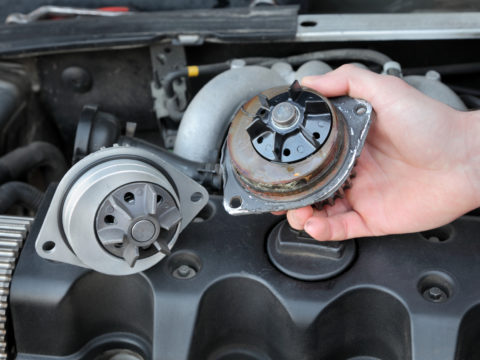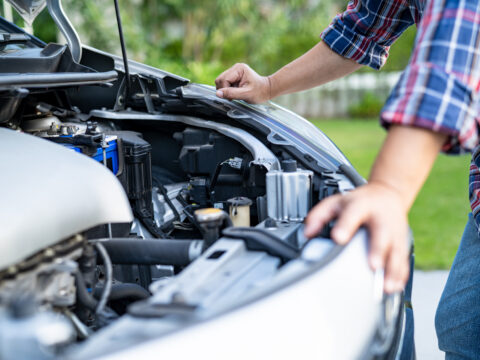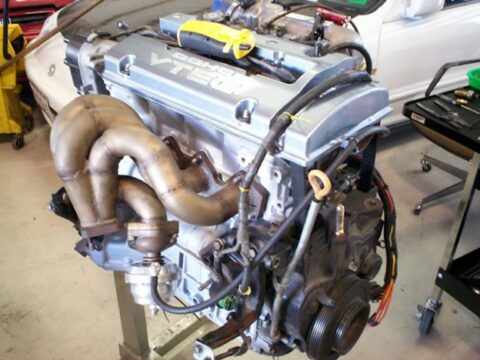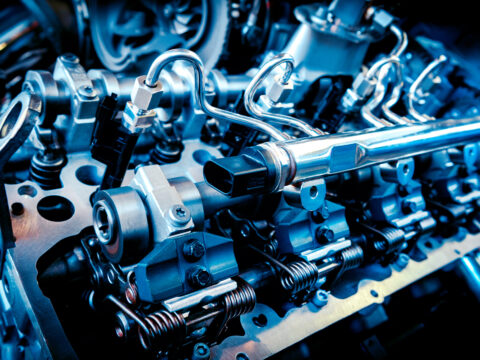Ignition coils are pivotal for internal combustion engines to transform the battery’s voltage into high-voltage pulses, igniting the engine’s air and fuel mixture.
If your ignition coil shows signs of failure, your vehicle will be less efficient as it is not operating at its peak capacity.
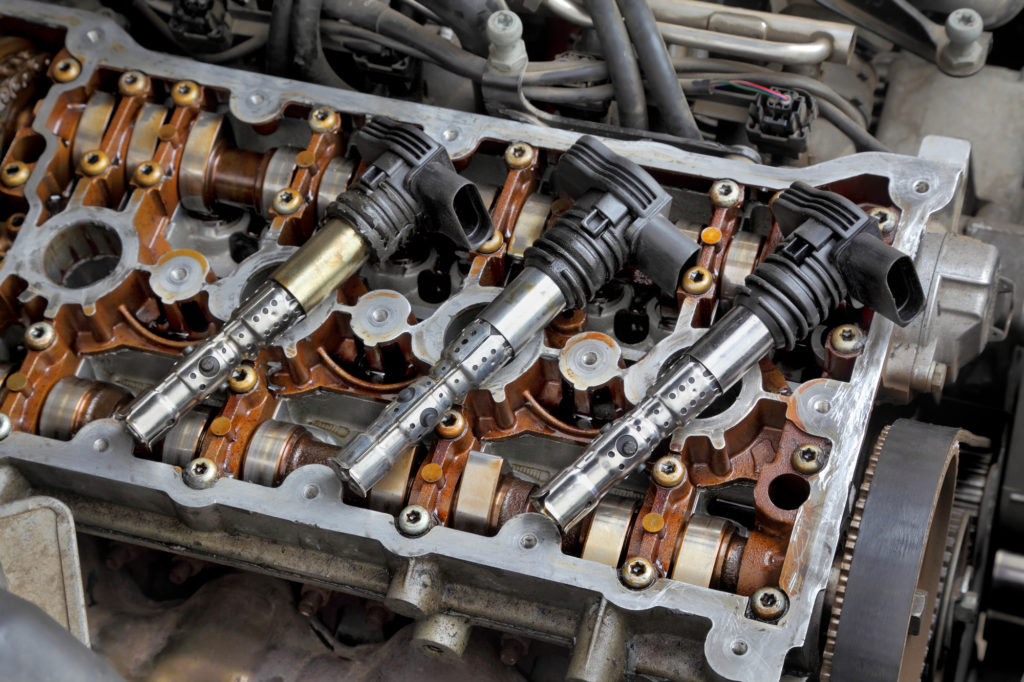
Misfiring of the engine and difficulties starting your vehicle are some of the critical symptoms of a bad ignition coil. The coil may develop these problems due to vibrations and an overheating engine.
Contents
How Does an Ignition Coil Work?
The ignition coil is a component that initiates an electrical current from the voltage provided by the battery.
The coil functions as an electrical transformer and has two sets of winding; the primary and the secondary.
The former is connected to the battery through a switch, while the latter is connected directly to the engine’s spark plugs.
When you turn on your ignition key, it completes an electrical circuit between the battery and the primary winding.
The process creates a magnetic field inside the transformer core that causes a voltage difference between its input and output terminals (plus and minus).
This voltage difference causes a current to flow through your spark plug cables, which flow through each wire in your distributor cap to each cylinder.
The flow creates a high-voltage electric charge that jumps across the gap between each spark plug’s tip and the combustion chamber wall.
An extremely hot spark jumps between these two surfaces, igniting fuel in your engine’s cylinders when it occurs at precisely the right moment within its cycle.
How To Diagnose a Bad Ignition Coil
You can diagnose a bad ignition coil by checking the resistance with an ohmmeter.
Connect the ohmmeters’ test leads with the coil’s primary terminals. The reading should be between 0.4 and 2 ohms.
If the reading is zero, the coil is likely shorted. If it’s way above 2 ohms, it signals an open coil.
Another way to determine if your ignition coil is bad is to check for spark at the spark plug using a spark tester.
To check for the spark:
- Switch off the vehicle’s engine and remove the spark plug
- Remove the ignition coil from the spark plug
- Connect one end of the spark tester to the ignition coil output and the other to the top of the spark plug
- Now, start the engine while checking the light on the spark tester
If the light doesn’t flash, the coil may be bad, or the circuit that controls that coil may have developed some faults.
Symptoms of a Bad Ignition Coil
A bad ignition coil can cause a variety of symptoms. If the coil is defective, it will not produce a spark to ignite the fuel/air mixture in the cylinders, which will cause your car to stall out and misfire.
The following are common symptoms of a bad ignition coil:
Engine Misfiring
A bad ignition coil will cause your engine to miss or stumble while accelerating or upshifting.
You may also notice that when you put your foot on the gas pedal, your engine surges forward while idling but then dies out after a few seconds.
The misfire occurs when one cylinder fires incorrectly or doesn’t fire at all.
Increased Fuel Consumption
A faulty ignition coil will make some of the cylinders misfire, as it cannot release a high voltage spark required to light the cylinders.
If cylinders don’t fire correctly, they can increase fuel consumption significantly. More fuel is needed to run an engine with fewer cylinders than normal due to reduced engine power, which leads to fewer miles per liter of fuel.
If you notice an unusual trend in your vehicle’s fuel consumption rate, you might want to check on the condition of the ignition coil.
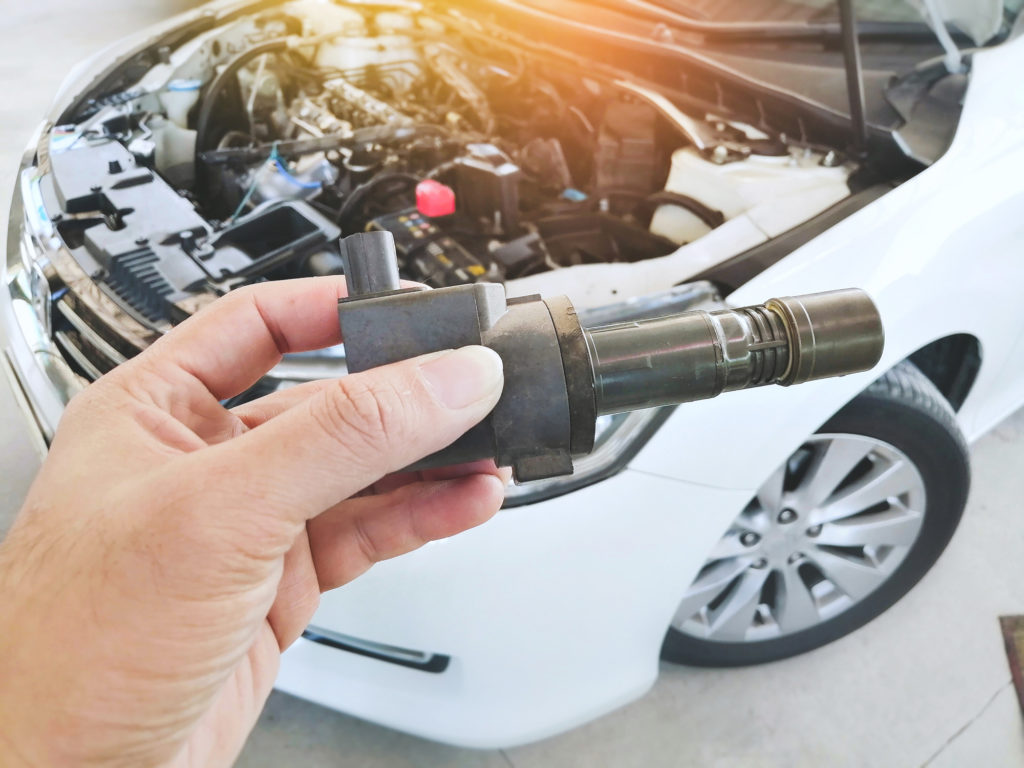
Vehicle Stalling and Difficult Starts
The engine requires well-timed sparking to start and run at the proper voltage. A faulty ignition coil sends irregular sparks to the spark plugs.
These irregular sparks may cause the vehicle to stall and experience challenges when starting.
Backfiring
Backfiring occurs when combustion happens in front of the spark plug instead of at the plug’s tip.
This discoordination comes when there isn’t enough voltage to fire up the spark plug properly, which can happen if your ignition coil is faulty.
When unused fuel in the combustion cylinder explodes, you will experience loud bang sounds from your vehicle.
The explosion emits a strong gas smell accompanied by a dark smoke from the exhaust pipe.
Poor Catalytic Converter Performance
Catalytic converters help convert harmful emissions into less harmful ones.
A faulty ignition coil will fire a weak spark, allowing unburnt fuel to pass to the catalytic converter.
The unburnt fuel eventually saturates the catalysts in the converter, affecting the afterburn and oxidation process.
What Causes an Ignition Coil To Go Bad?
Below are the factors that cause ignition coils to go bad:
Damaged or Worn Spark Plugs
Damaged spark plugs force the ignition coil to work harder and give a higher output than they usually should.
As the spark plugs wear out, they develop a more significant firing gap which the coil has to make up for by releasing a higher voltage.
The increased strain makes the coils overheat due to voltage overload, reducing their lifespan.
Vibrations
Vibrations affect the winding and the insulation around the ignition coil, which leads to shorts and breaks.
If you notice unusual vibrations while driving, have them looked into by an auto mechanic immediately.
It could save you from needing additional repairs down the line.
Unstable Battery Power Supply
Your battery provides power to all electrical systems on your car, including your ignition coil.
An unstable power supply from the battery can burn the ignition coil, rendering it non-functional.
Overheating of the Engine
If the engine bay is heating excessively, it may melt down most of the rubber and delicate components of the engine. The ignition coils can melt down from excess heat.
If this happens, you need to have the heating problem solved before replacing the coil.
Ruined Fuel Injectors
Though rare, faulty or clogged fuel injectors can cause the failure of the ignition coil. Look out for vacuum leaks in the fuel injectors and fix them if you notice unusual wear out of the ignition coil.
Also, clean and unclog the fuel injectors regularly to keep them properly functional.
Will a Bad Coil Pack Throw a Code?
A bad coil pack will throw a code. One such code for this is P0350.
Can I Drive With Bad Ignition Coils?
You can’t drive with faulty ignition coils. The ignition coils are responsible for providing current to the spark plugs to create the spark needed for combustion.
Without this spark, your car will have no combustion and no way to run.

